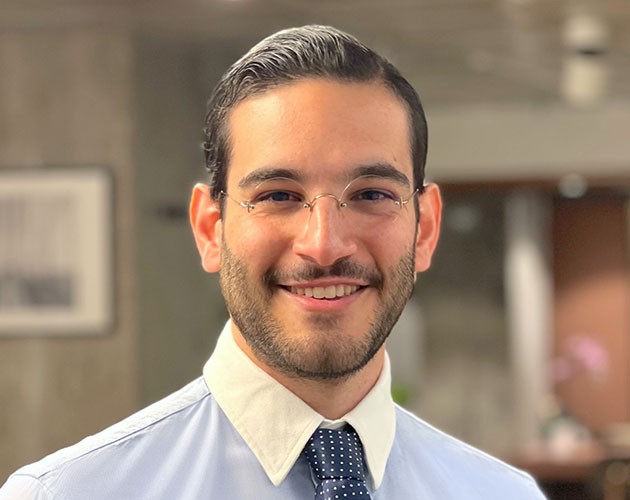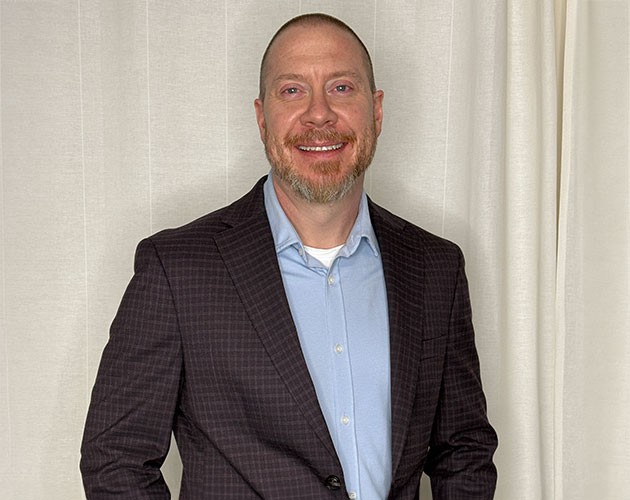Sometimes You Just Need a Lucky Bounce

“Dedicated to teaching.” “Very knowledgeable.” “Shares personal anecdotes that engage students.” “Respected.”
These are the types of comments you will find on RateMyProfessors.com for longtime Certificate Program in Personal Financial Planning instructor and advisory board member Kurt Carrasquilla.
With decades of relevant on-the-job experience to bring to his courses, it is not surprising Kurt’s humor and real-world examples are appreciated by students trying to grasp financial planning concepts. After all, each of their future clients will have their own unique financial needs to be met.
Kurt’s influence doesn’t stop once the course ends. He is the reason that many students—including Sabrina Lowell, CFP®, CPCC, who took a course from Kurt in 2002—develop long-term connections in the personal financial planning (PFP) field.
At a previous career night event, Sabrina—who at that time was a panelist, and an adviser and chief operating officer at Mosaic Financial Partners—said, “I chose the Berkeley program because of the classroom environment with other people that I could connect with. I still have a number of connections with people I went through classes with.”
Today, Sabrina is managing director at Fort Point Capital Partners.
Another panelist in that session, Brian Kozel, CFP®—who now is partner and lead adviser at North Berkeley Wealth Management—agreed, “I went through the program in 2011. I was fortunate enough to have Kurt as an instructor.”
Brian adds about the personal financial planning program, “I had a great chance to network with a number of people, many of whom I'm still in close contact with and some we've hired. It's been a great feeding ground for wonderful local talent.”
That “feeding ground” also fed Kurt’s own career. “I took this program in 1995,” he says. “I was very drawn to UC Berkeley Extension’s personal financial planning program—second place wasn’t even close.”
Like Capital Gains
Kurt’s career in financial planning began in 1992, when he graduated from San José University with a bachelor’s degree in finance. That’s 30 years ago. So what about this field has drawn him in for so long, has made him so invested?
“Financial planning is a great field because it allows you to walk through life with clients,” he replies. “You are there for the high points, the challenging times—and everything in between. Clients end up becoming an extension of family. I feel so fortunate to have their trust.”
Not long after graduation, Kurt began his career as a financial analyst with Ministor Peripherals, and during that same time period began an M.B.A. program at Golden Gate University in finance and financial planning. His decision to pursue a M.B.A. and focus on financial planning was brought on by a long-held career desire: To be in wealth management.
“I’ve always wanted a position in wealth management,” Kurt says. “After my undergraduate degree, I was turned down by pretty much every wealth management firm; I still have my Merrill Lynch rejection letter—framed at home.
“It was a different time in 1992; some employers were very direct and told me I was too young and didn’t know anyone, while others couched it a little better. I have always loved education, and wanted to get my M.B.A. Golden Gate University was one of the few universities at the time that had a concentration in financial planning. I knew that was what I ultimately was going to be doing, so it made a lot of sense.”
But even though becoming a financial analyst wasn’t his career goal, Kurt appreciates every moment of learning on the job. “I am very grateful for my time at Ministor Peripherals because I was able to see a company go public, and I met so many amazing people at that startup,” he says.
These work and learning experiences continue to play important parts in Kurt’s career—and in his classroom.
“When I was getting my M.B.A., a professor introduced me to someone whom I ended up working with for 28 years,” he tells me. “The role I started in was a support one that continued to evolve.
“But if I hadn’t joined a team at work, I don’t think I would have made it. I have always been very analytical, and I enjoy people. I am not good with sales, but any wealth management position will have a component of this. So much of this field is understanding your strengths and playing to them. I am currently a senior vice president and enjoy working with clients.”
Still building his career portfolio, Kurt was not done learning.
His Return on Investment
In 1995, just after completing his graduate school program, Kurt looked into furthering his education—by registering for our Certificate Program in Personal Financial Planning.
“Tim Kochis launched the program in 1981 at UC Berkeley after he successfully started UCLA’s in 1978,” commends Kurt.
“Our program is so lucky to still have Tim helping on the advisory board. I have so much respect for him; he is such an amazing leader and has a wealth of information. Anyone in the financial planning industry has heard of, or knows, Tim. He is a legend, and someone whom I still look up to. I feel very fortunate to know him.”
Career advice: It's a marathon, not a sprint. Suit up every day, roll up your sleeves, put your best foot forward and gain that trust. You need to know what your clients' goals or objectives are, what their fears are—those are very important.
Twenty-seven years (and counting) later, Kurt still can recall the certificate instructors who made the program exceptional to him.
“The investments course was taught by Hugh Beecher, who at the time was with Goldman Sachs,” recalls Kurt. “I also really enjoyed the Personal Financial Planning Capstone course taught by Linda Fitz and Kacy Gott. It was amazing!”
And he was able to put lessons learned to immediate use. Linda Kreitzman, who ran the financial planning program at the time Kurt was taking courses, approached him.
“She asked if I had ever considered teaching,” he says, “and I told her I had always wanted to teach. So we started the process—it took nine months, but she eventually offered me the position to teach Investments in Personal Financial Planning: General Principles and Methods.
“I was guaranteed to teach for five weeks, and at that point there would be an evaluation. If I scored well, I would be able to finish teaching the last five weeks of the course. If the evaluation didn’t go well, someone would step in and finish out the course for me. I was a little nervous, to say the least,” he admits.
“Twenty-four years later, I am so grateful that Berkeley allows me to be in front of their students. We have the best students on the planet—by far!”
When asked what about teaching keeps him going semester after semester, Kurt honestly replies, “I have always taught the investments class. Anyone who teaches will tell you that they do it for the love of helping others.
“During my career, I have had people help me advance. Now, I am in a position to help students outside of the classroom, in addition to in the classroom—and I absolutely love that. Connecting a motivated student to someone I know in industry—I have done that so many times. The student is grateful, but what they may not realize is how much joy it brings me. I know they will do well. Sometimes you just need a lucky bounce. I have had my share of those bounces, and I look forward to helping others have a similar one.”
Making Wealth Management Personal
In 2005, Kurt earned a certificate in private wealth management from University of Pennsylvania’s Wharton School. Then, in 2010, he completed a three-day program in investment management from Stanford University, from which he now shares that knowledge with his students.
“I am a lifelong learner,” Kurt states.
He is resolute about continuing education being at the center of his career.
“I can’t say enough about continuing to learn as you move through your career. It is easy to tread water—don’t do that. Push yourself to be better. You will lap your competition, and clients will absolutely pick up on it and appreciate it. Whenever I am in a class, I always look for good material I can incorporate into my class,” he enthuses.
Kurt developed the advisory board in 2006 for the Certificate Program in Personal Financial Planning with former program director Keith Gatto. In the past 16 years, Kurt has chaired that board for five of them and has always been a member. Advisory board members don’t get paid for this service to our community.
“I love volunteering my time to do anything to improve our program,” he imparts. “We have a pretty awesome advisory board: A list of ‘who’s who’ in our industry, and they are very passionate about the program. It is fun to surround yourself with people like that.”
Getting started in the field: It's incumbent upon you to seek out a mentor. There are a lot of people who have been in the industry for a while and can share how they communicate with clients. That's important, and it only comes with practice.
And maybe that is why Kurt shows no signs of stopping—teaching, that is.
“When I crossed 20 years teaching in the program, I had a few people ask me when I was going to stop,” he says. “I looked at them puzzled. That thought hasn’t surfaced for me. I would love to teach for as long as they allow me.
“Probably my favorite thing about teaching is working with a student who wants to light it up, helping that person get to where they want to go. I feel beyond fortunate to be where I am in my career. If I can have an impact on a student to help them get to a similar place, that is priceless.”


